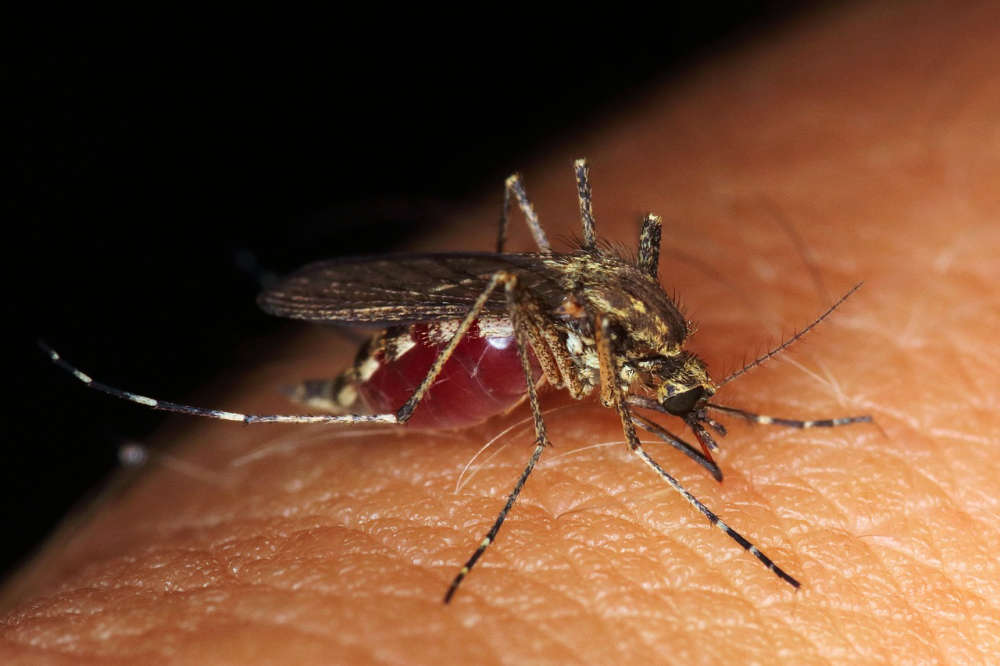
State and local health officials are asking residents of Fulton County to take precautions after mosquitos tested positive for West Nile Virus.
State health officials have confirmed the latest instance of West Nile Virus in a mosquito sample collected in Fulton County.
The Indiana Department of Health reports that the virus is commonly found throughout the state each summer, so it is expected to see activity in more counties as the season progresses. In 2023, the virus was found in mosquitoes in all 92 Indiana counties.
"As soon as we start detecting West Nile Virus in mosquitoes, we know people are at greater risk for infection,” said Jennifer House, veterinary epidemiologist at the Indiana Department of Health. “The good news is there are simple, effective steps Hoosiers can take to protect themselves from being bitten by a mosquito.”
House recommends people take the following protective steps:
• Avoid being outdoors during prime mosquito biting times, dusk to dawn, when possible;
• Apply insect repellent containing DEET, picaradin, or oil of lemon eucalyptus to clothes and exposed skin;
• Install or repair screens on windows and doors to keep mosquitoes out of the home; and
• When possible, wear long-sleeved shirts and pants when outside.
West Nile Virus usually causes a mild form of the illness, which can include fever, headache, body aches, swollen lymph glands, or a rash. However, a small number of individuals can develop a more severe form of the disease with encephalitis or meningitis and other neurological syndromes, including flaccid muscle paralysis. Some individuals may die from the infection.
Health officials say that although individuals over age 50 are at greatest risk for serious illness and even death from West Nile Virus, people of all ages have been infected with the virus and have had severe disease. Since 2002, when Indiana had its first human case of West Nile Virus, more than 20 Hoosiers have died from the illness.
West Nile virus is transmitted to humans by mosquitoes that have first bitten an infected bird. A person bitten by an infected mosquito may show symptoms three to 15 days after the bite.
“Mosquitoes are very active this time of year and can spread several different disease causing viruses, including West Nile, St. Louis Encephalitis, and La Crosse Encephalitis,” House said. “Mosquito transmitted diseases commonly occur in August and September, so Hoosiers should take the proper precautions to prevent being bitten.”
House is also asking Hoosiers to take steps to rid their properties of potential mosquito breeding grounds by:
• Discarding old tires, tin cans, plastic containers, ceramic pots or other containers that can hold water;
• Repairing failed septic systems;
• Drilling holes in the bottom of recycling containers left outdoors;
• Keeping grass cut short and shrubbery trimmed;
• Cleaning clogged roof gutters, particularly if leaves tend to plug up the drains;
• Frequently replacing the water in pet bowls;
• Flushing ornamental fountains and birdbaths periodically; and
• Aerating ornamental pools, or stocking them with predatory fish.
The basic rule: If water lasts more than four days, mosquitoes can reproduce. Even a small bucket can produce up to 1,000 mosquitoes in just a few days.
For more information, visit the Indiana Department of Health's website at www.statehealth.IN.gov.


 Bill abolishing court positions passes Senate, Pulaski County could lose judge
Bill abolishing court positions passes Senate, Pulaski County could lose judge
 Detached garage fire damages home in Rochester
Detached garage fire damages home in Rochester
 Jonesy's Junction voted best tenderloin in Indiana
Jonesy's Junction voted best tenderloin in Indiana
 City council to consider food truck ordinance
City council to consider food truck ordinance
 ISP: Stay alert and share the road with farm equipment this spring
ISP: Stay alert and share the road with farm equipment this spring
 Kewanna residents gather to share frustration over lack of mail delivery
Kewanna residents gather to share frustration over lack of mail delivery
 Restaurants host fundraisers for local suicide prevention task force
Restaurants host fundraisers for local suicide prevention task force
 Bookings and Blotter – April 17, 2025
Bookings and Blotter – April 17, 2025




